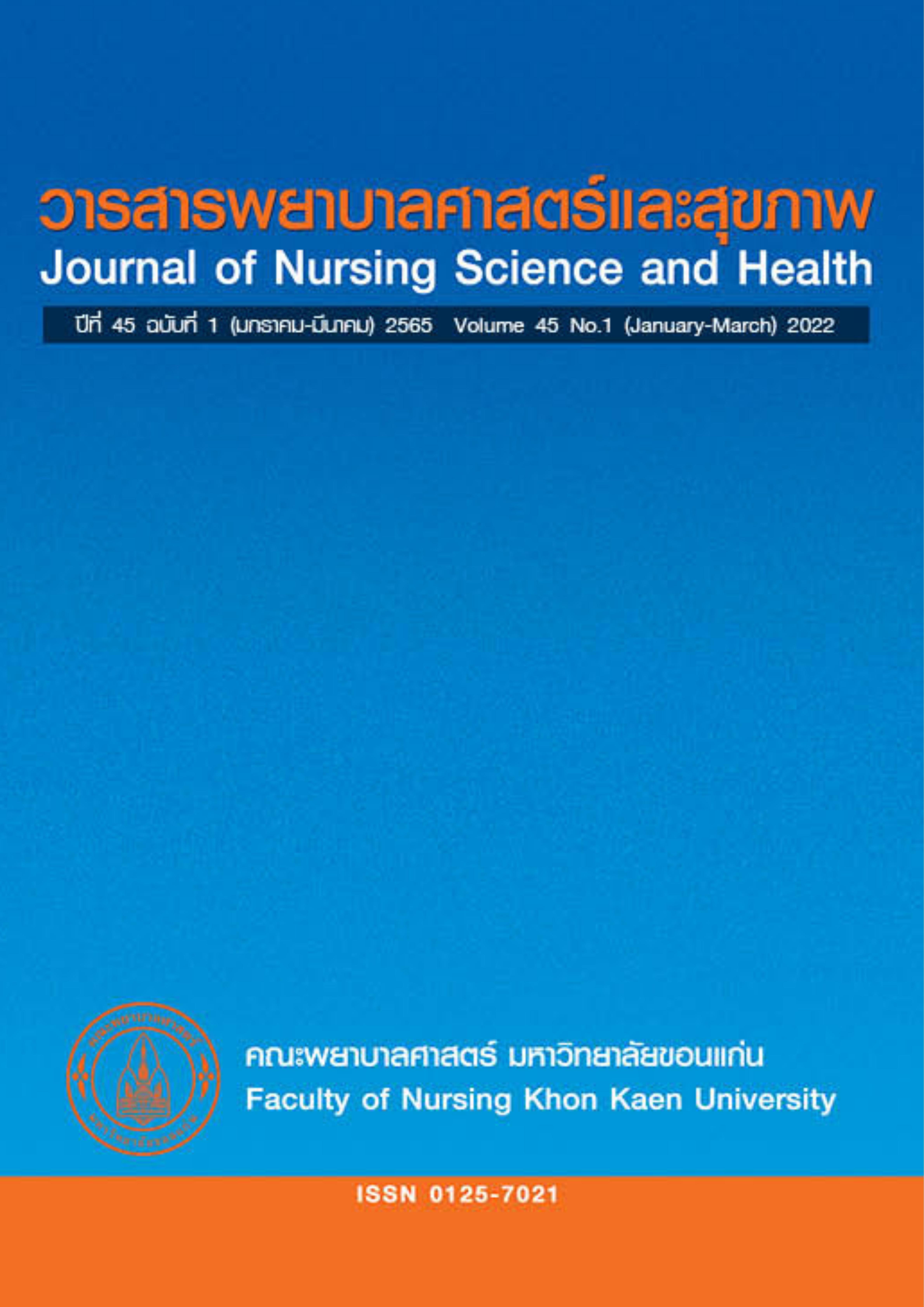ประสิทธิผลของโปรแกรมการเพิ่มศักยภาพสมองเพื่อป้องกันภาวะสมองเสื่อมในผู้สูงอายุ ที่อาศัยอยู่ในชุมชนเขตตำบลในเมือง จังหวัดอุบลราชธานี
คำสำคัญ:
การเพิ่มศักยภาพสมองเพื่อป้องกันภาวะสมองเสื่อมในผู้สูงอายุบทคัดย่อ
การวิจัยในครั้งนี้เป็นการวิจัยกึ่งทดลอง มีแบบแผนการวิจัยกลุ่มเดียววัดก่อนและหลังการทดลอง มีวัตถุประสงค์เพื่อศึกษาประสิทธิผลของการใช้โปรแกรมการเพิ่มศักยภาพสมองเพื่อป้องกันภาวะสมองเสื่อมในผู้สูงอายุ กลุ่มตัวอย่างผู้สูงอายุ 60 ปีขึ้นไปที่อาศัยอยู่ในเขตเมือง จังหวัดอุบลราชธานี จำนวน 15 คน เลือกแบบเฉพาะเจาะจง เครื่องมือที่ใช้ในการวิจัย เป็นเครื่องมือมาตรฐาน จากคู่มือมาตรฐาน และดำเนินงานคลินิกผู้สูงอายุคุณภาพ ของสถาบันเวชศาสตร์ผู้สูงอายุ กรมการแพทย์ กระทรวงสาธารณสุข ประกอบด้วย ข้อมูลทั่วไป ข้อมูลภาวะสมองเสื่อม การทำกิจวัตรประจำวัน และแบบทดสอบสมรรถนะสมองด้านความจำ โปรแกรมการพัฒนาศักยภาพสมอง ประกอบด้วย การกระตุ้นสมองอย่างเป็นระบบ 4 ด้าน คือ 1) การประเมินความใส่ใจ 2) การทดสอบเชิงมิติสัมพัทธ์ 3) การทดสอบความจำ และ 4) การทดสอบการให้เหตุผล วิเคราะห์ข้อมูลโดยใช้สถิติ Paired T test ในข้อมูลที่มีการแจกแจงเป็นแบบโค้งปกติ และวิเคราะห์ข้อมูลโดยใช้สถิติ Wilcoxon test ในข้อมูลที่มีการแจกแจงแบบไม่เป็นโค้งปกติ ที่เกิดจากการคำนวณขนาดตัวอย่างสำหรับการเปรียบเทียบค่าเฉลี่ยระหว่างสองกลุ่มที่ไม่เป็นอิสระต่อกัน
ผลการศึกษาพบว่า กลุ่มตัวอย่างที่ใช้โปรแกรม มีค่าเฉลี่ยคะแนนจากแบบประเมินสภาพสมองเบื้องต้น แบบประเมินภาวะพุทธิปัญญา แบบประเมินภาวะพุทธิปัญญาเอเดส-ค็อก และแบบประเมินอาการสมองเสื่อมทางคลินิก มีคะแนนค่าเฉลี่ยเพิ่มขึ้นอย่างมีนัยสำคัญทางสถิติ p ≤ 0.05 สรุปได้ว่าโปรแกรม มีส่วนช่วยกระตุ้น และพัฒนาศักยภาพของสมองด้านต่างๆ ในผู้สูงอายุที่มีภาวะเสี่ยงต่อสมองเสื่อมระยะเริ่มต้นได้ อย่างไรก็ตามควรมีการพัฒนาโปรแกรม ให้ครอบคลุมทั้ง 4 ด้าน โดยการออกแบบกิจกรรมให้สอดคล้องกับบริบทของผู้สูงอายุในพื้นที่ การทำกิจกรรมอย่างสม่ำเสมอ และมีการติดตามอย่างต่อเนื่อง สร้างชุมชน สังคมที่ตระหนักรู้ในการป้องกันภาวะสมองเสื่อมในชุมชน ด้วยโปรแกรมการเพิ่มศักยภาพสมองเพื่อป้องกันภาวะสมองเสื่อมในผู้สูงอายุต่อไป
เอกสารอ้างอิง
Arkin SM, Alzheimer’s Disease international. Am J Alzheimers Dis Other Demen. 2008;15(3):152-62.
Chansirikan S. Prolonged brain life. Bangkok: Printing Public Company Limited; 2013. (in Thai)
Meangpaisan W. Prevention, Assessment and Care of Dementia Patients Dementia: Prevention, assessment and care. Bangkok: Krungthep Printing Limited Partnership. 2013. (in Thai)
Franchi S, Bianchini F. The search for a theory of cognition. Early Mechanisms and New Ideas. Value Inquiry Book Series: New York; 2011.
Department of Medicine, Ministry of Public Health. Guide to screening/evaluating the elderly. Bangkok: The Office of Veterans Affairs Housing Care; 2014. (in Thai)
World Health organization. World Alzheimer report. Retrieved (online) 2013 (cited 2016 Feb 20). Available from http://www.who.int8mediacentre/factsheets/fs318/en/index.html.
Kriangkraisakda V. Application of new robotic theory exact size to develop a brain training program for memory rehabilitation in patients with early dementia. Research and Intelligence Science. 2012; 10:11-25. (in Thai)
Akplakorn W, editors. Thai people's health survey report by physical examination 5th ed. Nonthaburi: Health Systems Research Institute; 2014. (In Thai)
Siripanit B. The situation of the elderly in Thailand 2015. Bangkok: Foundation of Thai Gerontology Research and Development institute; 2015. (In Thai)
Prince M, Herrera AC, Knapp M, Guerchet M, Karagiannidou M. World alzheimer eeport 2016. Improving healthcare for people living with dementia. Coverage, quality and costs now and in the future. London: Alzheimer’s Disease International; 2016.
Kuha A, Nakawaroe D, Chansirikan S, et al. Research report on brain development of early brain impotence. Institute of medicine, supreme patriarch of Buddhism for the elderly institute of geriatric medicine, department of medical services, Ministry of Health; 2015. (in Thai)
Kuha A, Nakawaroe D, Chansirikan S, et al. Handbook for Cognitive Stimulation in. People with Mild Cognitive Impairment. Institute of Medicine, Supreme Patriarch of Buddhism for the Elderly (Institute of Geriatric Medicine, Department of Medical Services, Ministry of Health; 2016. (in Thai)
Chow SC, Shao J, Wang H. Sample size calculation in cinical research 2nd ed. Champman & Hall/CRC; 2013.
Narksuwan P. Nonparametric statistics. Chonburi: Department of Mathematics Burapha University; 2011. (in Thai)
Hesse CA, Ofosu JB, Nortey EN, Introduction to nonparametric statistical methods. ghana: Akrong Publications Ltd; 2017.
Miller K. Nonparametric statistics for social and behavioral sciences. 2nd ed. Northwest: CRC Press Taylor & Francis Group; 2014.
Tantitrithisak T. (Editor). Dementia treatment guidelines Institute of Neurology, Department of medical services. 1st ed. Bangkok: Thanapad Co., Ltd. 2014. (in Thai)
Namchantra R. The rehabilitation of older people with dementia. Journal of Academic Affairs 2013; 14 (27): 137-50. (in Thai)
ดาวน์โหลด
เผยแพร่แล้ว
รูปแบบการอ้างอิง
ฉบับ
ประเภทบทความ
สัญญาอนุญาต
ลิขสิทธิ์ (c) 2022 วารสารพยาบาลศาสตร์และสุขภาพ

อนุญาตภายใต้เงื่อนไข Creative Commons Attribution-NonCommercial-NoDerivatives 4.0 International License.
วารสารพยาบาลศาสตร์และสุขภาพเป็นเจ้าของลิขสิทธิ์ในการเผยแพร่ผลงานที่ตีพิมพ์ห้ามผู้ใดนำบทความที่ได้รับการตีพิมพ์ในวารสารพยาบาลศาสตร์และสุขภาพไปเผยแพร่ในลักษณะต่าง ๆ ดังนี้ การนำบทความไปเผยแพร่ออนไลน์ การถ่ายเอกสารบทความเพื่อกิจกรรมที่ไม่ใช่การเรียนการสอน การส่งบทความไปตีพิมพ์เผยแพร่ที่อื่น ยกเว้นเสียแต่ได้รับอนุญาตจากวารสารพยาบาลศาสตร์และสุขภาพ



